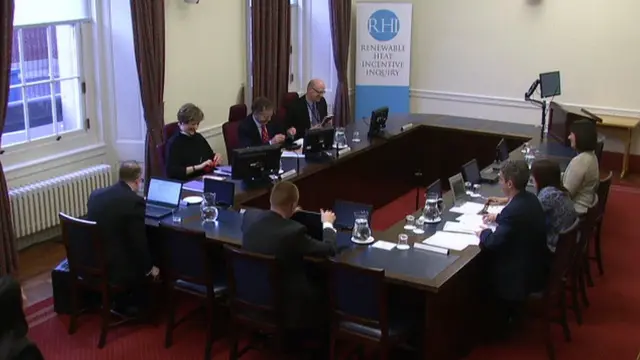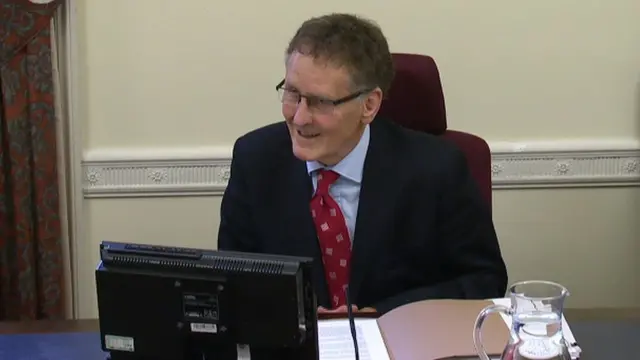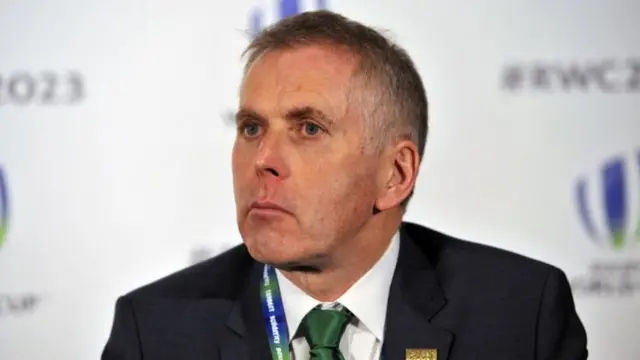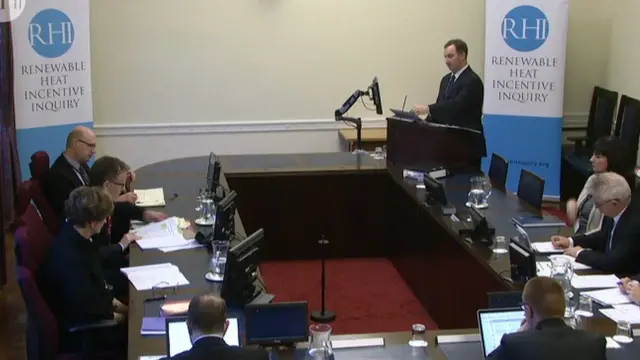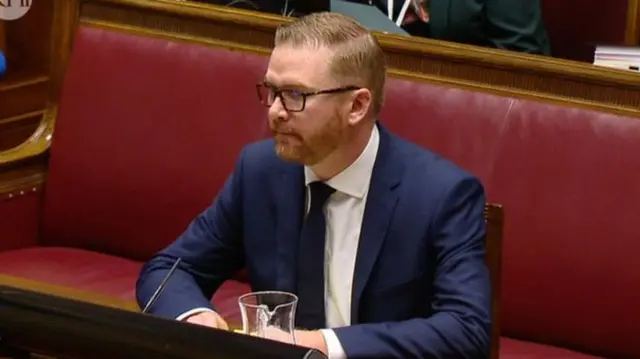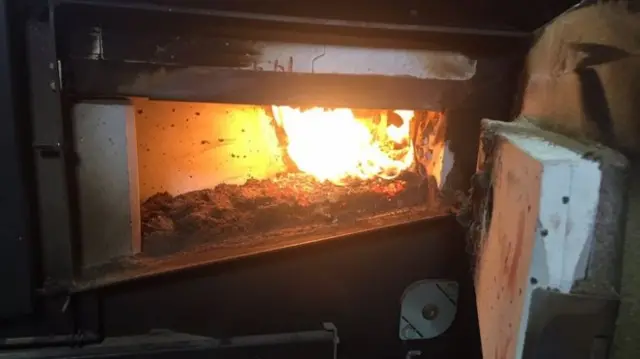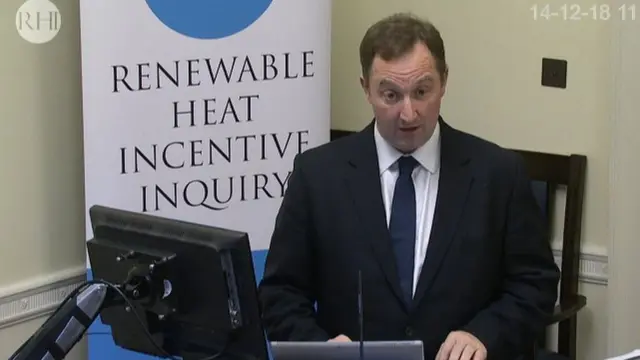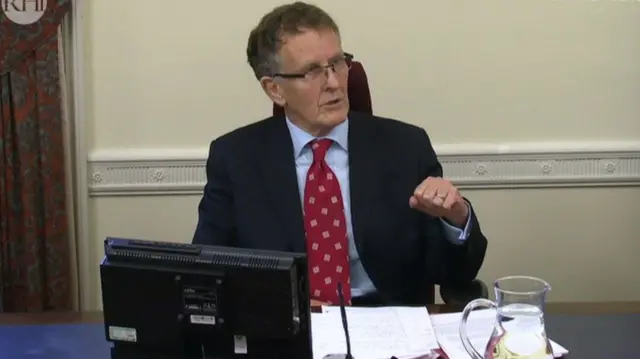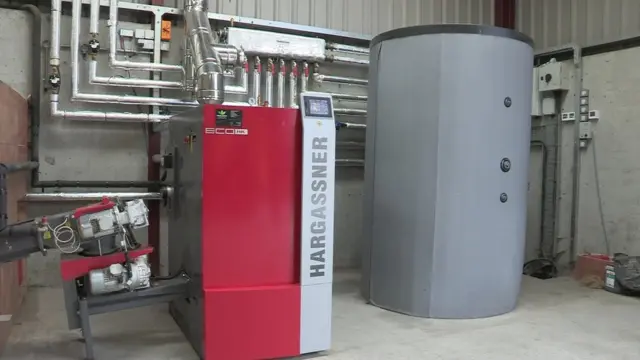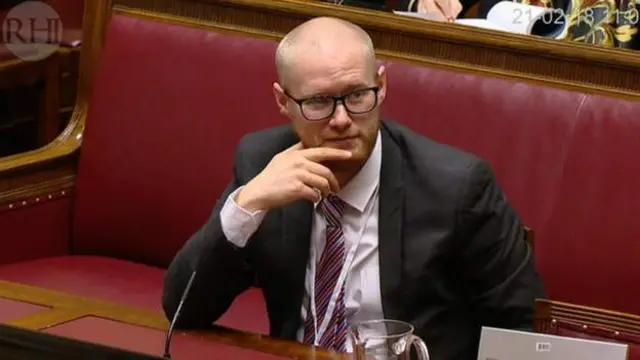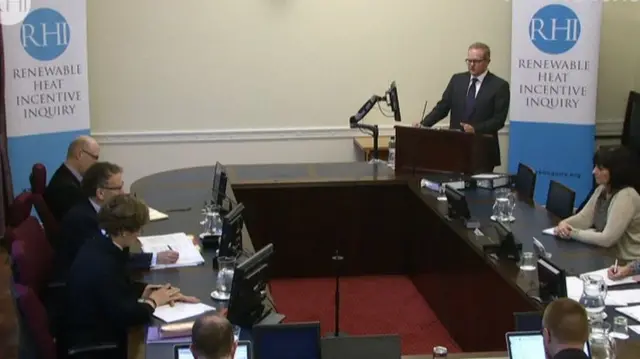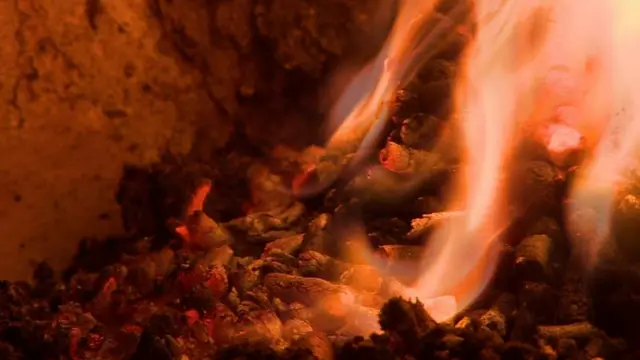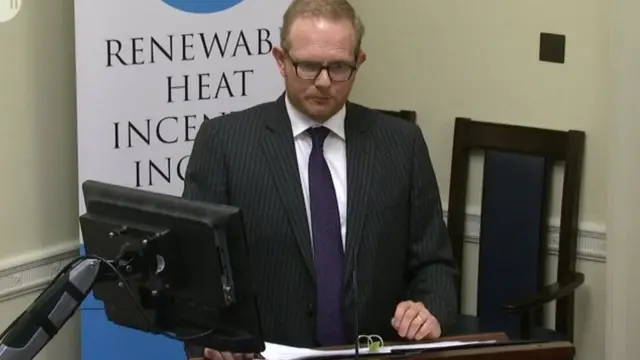Last one out switch off the fairy lights!published at 14:01 GMT 14 December 2018
That's all for day 114 at the RHI Inquiry - it's fair to say that the hearings finished with a whimper rather than a bang but they certainly had their moments along the way.
And Sir Patrick Coghlin's final comments hint at more drama to come when the report is published, whenever that might be.
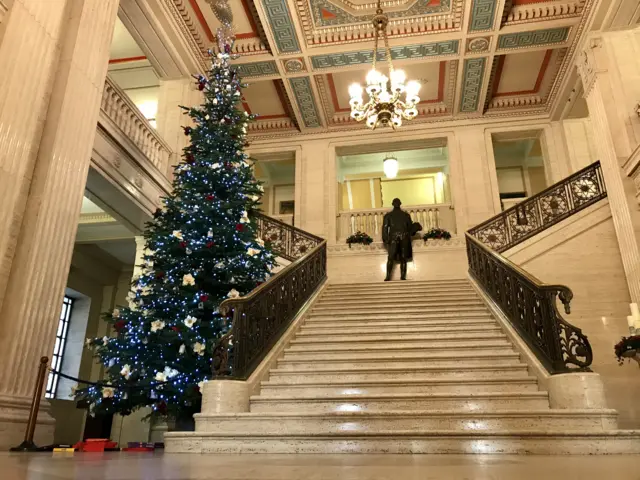
We hope you've enjoyed our live coverage of the inquiry - a big thanks to everyone who chose to follow it, especially all of the "anoraks" who joined us day in, day out.
From the BBC News NI team at Stormont, have a great Christmas and a happy new year!

